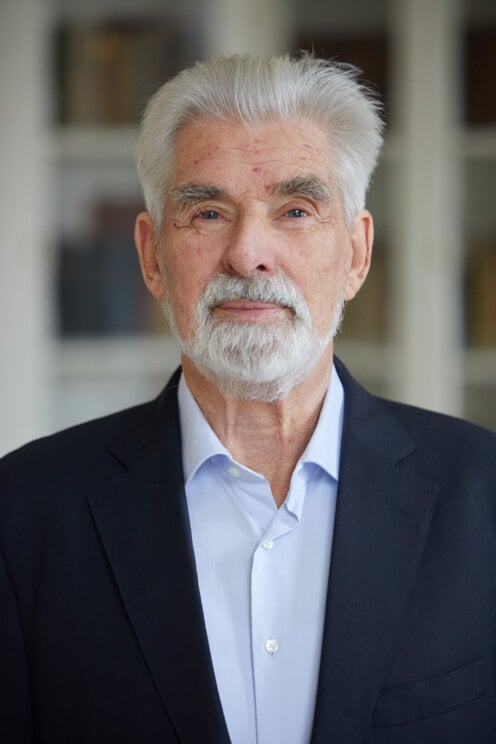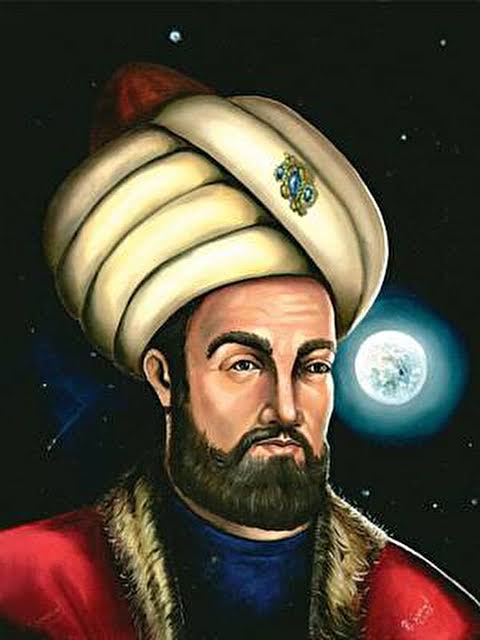by Sudenaz
Copyright © 2023
SCIENTISTS
– KLAUS HASSELMAN
– ALI QUSHJI
– EMİLY SHUCKBURGH
KLAUS HASSELMANN

He is a German oceanographer and climate modeller. He is Professor Emeritus at the University of Hamburg and former Director of the Max Planck Institute for Meteorology. He was awarded the 2021 Nobel Prize in Physics jointly with Syukuro Manabe and Giorgio Parisi.
Hasselmann was born on 25 October 1931 in Hamburg, Germany. In 1934 Hasselmann and his family emigrated from Hamburg to England, where he spent his childhood in Welwyn Garden City in Hertfordshire. North of London And his father worked as a journalist in the U.K. Although the Hasselmanns themselves were not Jewish, they lived in a close-knit community of mostly Jewish German emigrants, and received assistance from the English Quakers when they arrived in the country. Klaus Hasselmann attended Elementary and Grammar School in Welwyn Garden City, and passed his A-levels in 1949.
Hasselmann has said that “I felt very happy in England” and that English is his first language. His parents returned to Hamburg in 1948, but Klaus remained in England to finish his A-levels. In August 1949, at the age of nearly eighteen, he followed his parents to Hamburg in the then divided Germany in order to attend higher education. After attending a practical course in mechanical engineering from 1949 to 1950, he enrolled at the University of Hamburg in 1950 to study physics and mathematics. He continued his work in physics and fluid dynamics at the University of Göttingen and at the Max Planck Institute of Fluid Dynamics, earning a Ph.D. from the University of Göttingen in 1957. Klaus Hasselmann has been married to the mathematician Susanne Hasselmann since 1957 and they have also worked closely professionally. They have three children.
In the field of climate change,Hasselmann pioneered a mathematical description of the stochastic forcing of the climate by the fluctuating weather. The idea is that climate variability need not come about merely by changes in external forcing,but even under fixed conditions the climate experiences noisy forces due to the randomly developing weather patterns. This is analogous to the motion of a heavy particle being bombarded by randomly moving small particles ,but translated to a much more complicated high-dimensional nonlinear system. Knowledge of the short-term fluctuations of the weather then allows to predict the stochastic variability of the climate.
Hasselmann later suggested how to extract ‘fingerprints’ of anthropogenic climate change. The challenge is to recover in an optimal fashion the signal of systematic climate change in the presence of strong climate variability. He applied the theory of optimal linear filters to this multivariate, space-time dependent complex problem in order to give a prescription of how to extract these fingerprints
ALI QUSHJI

Ala al-Dīn Ali ibn Muhammed (1403 – 16 December 1474), known as Ali Qushji was a Timurid theologian, jurist, astronomer, mathematician and physicist, who settled in the Ottoman Empire some time before 1472. As a disciple of Ulugh Beg, he is best known for the development of astronomical physics independent from natural philosophy, and for providing empirical evidence for the Earth’s rotation in his treatise, Concerning the Supposed Dependence of Astronomy upon Philosophy. In addition to his contributions to Ulugh Beg’s famous work Zij-i-Sultani and to the founding of Sahn-ı Seman Medrese, one of the first centers for the study of various traditional Islamic sciences in the Ottoman Empire, Ali Kuşçu was also the author of several scientific works and textbooks on astronomy.
Contributions to Astronomy
Qushji improved on Nasir al-Din al-Tusi’s planetary model and presented an alternative planetary model for Mercury. He was also one of the astronomers that were part of Ulugh Beg’s team of researchers working at the Samarqand observatory and contributed towards the Zij-i-Sultani compiled there. In addition to his contributions to Zij, Ali Kuşçu wrote nine works in astronomy, two of them in Persian and seven in Arabic. A Latin translation of two of Qushji’s works, the Tract on Arithmetic and Tract on Astronomy, was published in 1650.
Qushji’s most important astronomical work is Concerning the Supposed Dependence of Astronomy upon Philosophy. Under the influence of Islamic theologians who opposed the interference of Aristotelianism in astronomy, Qushji rejected Aristotelian physics and completely separated natural philosophy from Islamic astronomy, allowing astronomy to become a purely empirical and mathematical science. This allowed him to explore alternatives to the Aristotelian notion of a stationary Earth, as he explored the idea of a moving Earth instead .He found empirical evidence for the Earth’s rotation through his observation on comets and concluded, on the basis of empirical evidence rather than speculative philosophy, that the moving Earth theory is just as likely to be true as the stationary Earth theory.
EMİLY SHUCKBURGH

Professor Emily Shuckburgh is Director of Cambridge Zero at the University of Cambridge and Reader in Environmental Data Science at the Department of Computer Science and Technology. She is a mathematician and climate scientist and a Fellow of Darwin College, a Fellow of the Cambridge Institute for Sustainability Leadership, an Associate Fellow of the Centre for Science and Policy and a Fellow of the British Antarctic Survey.
She leads the UKRI Centre for Doctoral Training on the Application of AI to the study of Environmental Risks . Until April 2019 she led a UK national research programme on the Southern Ocean and its role in climate, and was deputy head of the Polar Oceans Team and head of the Data Science Group at British Antarctic Survey. In the past she has worked at École Normale Supérieure in Paris and at MIT.
She is a fellow of the Royal Meteorological Society and co-chair of their Climate Science Communications Group. She has also acted as an advisor to the UK Government on behalf of the Natural Environment Research Council. In 2016 she was awarded an OBE for services to science and the public communication of science. She is co-author with HRH The Prince of Wales and Tony Juniper of the Ladybird Book on Climate Change.
REFERENCES :
– https://en.wikipedia.org/wiki/Klaus_Hasselmann
– https://www.britannica.com/biography/Klaus-Hasselmann
– https://en.wikipedia.org/wiki/Ali_Qushji
– https://www.turing.ac.uk/people/guest-speakers/emily-shuckburgh
Published: Jan 24, 2023
Latest Revision: Jan 24, 2023
Ourboox Unique Identifier: OB-1409765
Copyright © 2023








